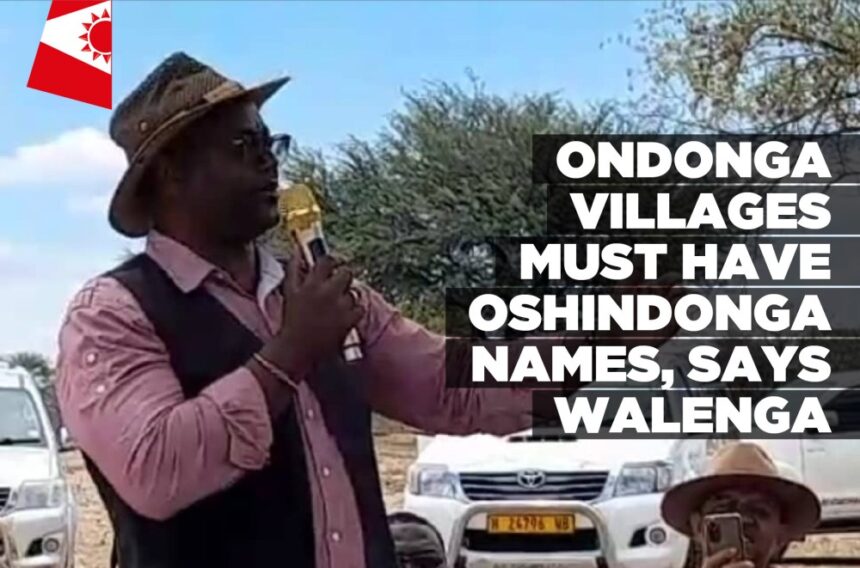Staff Reporter
ALL villages in the geographic area under the Ondonga Traditional Authority (OTA) must have Oshindonga names, said OTA chairperson, Senior Traditional Councilor John Walenga. Speaking at the installation ceremony of Sylvanus Elago, the new headman of the Ekonghola village, Walenga noted the existence in the Ondonga tribal area of several villages with non-Oshindonga names. “This has to change,” he said.
Ekonghola is one of the villages in Ondonga that have “foreign” names and that are primarily inhabited by Oshikwanyama-speaking people, a situation that arose from two different wars. The first wave of Ovakwanyama emigrants entered Ondonga after the death in combat of King Mandume Ya Ndemufayo of Oukwanyama during the early years of the 20th century. The second wave arrived during the 1970s, fleeing the border areas that had become a war zone. Still, other Ovakwanyama settled permanently in eastern parts of Ondonga attracted by the rich grazing fields. They are now subjects of the King of Ondonga.
Walenga spoke against the backdrop of protests by villagers opposed to the appointment of the new Ekonghola headman, saying that they wanted to have a say in the appointment. However, Walenga said that what the disgruntled villagers are demanding is contrary to the norms and traditions of Ondonga where the appointment of village headmen is the king’s prerogative. He said: “The King has the prerogative to choose anyone of his subjects and appoint him/her as head of a village, regardless of where he/she resides and regardless of his/her mother tongue.”
He also provided a handy definition of Omundonga (plural: Aandonga). According to him, being Omundonga has nothing to do with the language (Oshindonga). Omundonga is someone who is the subject of the King of Ondonga — a permanent inhabitant in the geographic area under the jurisdiction of the Ondonga Traditional Authority — regardless of his or her mother tongue.
He described the demonstrators as “unruly” and mandated that they be blacklisted. A process is already underway to identify all the protesters, place their names on a “master list,” and make sure they are never, ever allocated land in the Ekonghola village. According to him, the Ekonghola protests are a manifestation of the same opposition to the king’s authority that was on full display several years ago when residents of the neighbouring Ekoka village resisted and prevented the installation of Tileinge Wapulile as the new village headman.



Leave a Reply